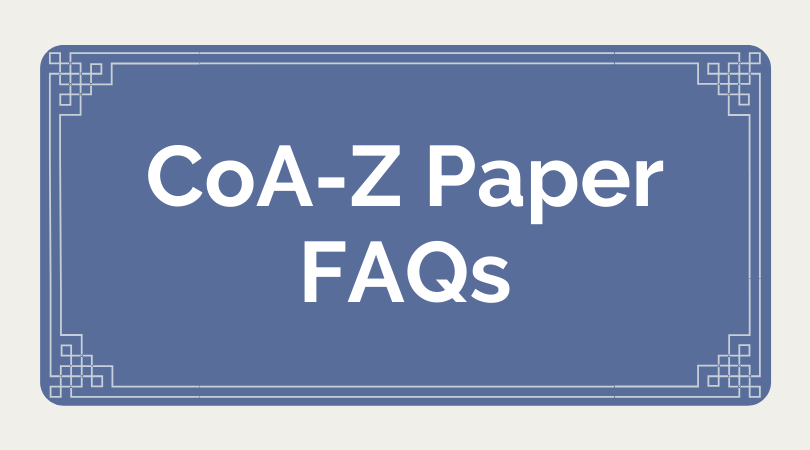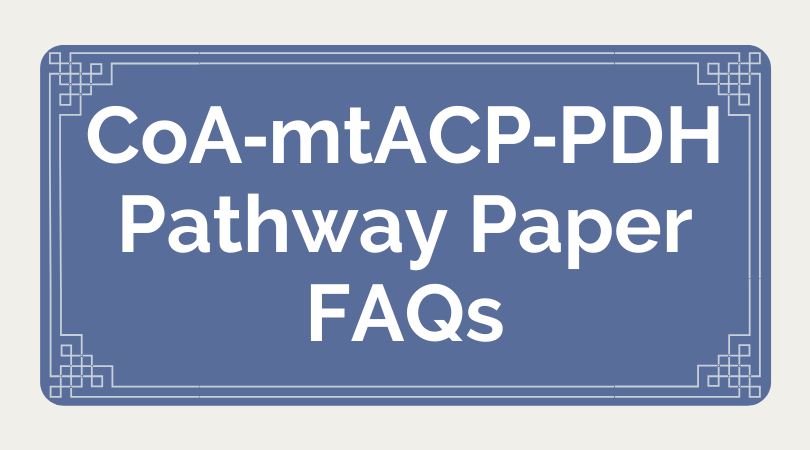
CoA-Z Trial Update (1/8/24)
With the new year, we’d like to send an update on our progress with CoA-Z. In September, we told you that we had decided to set aside plans for further clinical trials with CoA-Z, instead focusing our efforts on compiling the necessary data to present to the FDA in order to gain approval to make the compound more widely available as quickly as possible. This was based on our belief that our data was strong enough to submit without doing any additional studies. We still very much believe this to be true.
The FDA will be looking at the data from the clinical trial to decide whether CoA-Z is safe and whether it changes a biological marker of PKAN in the blood. As you know from our previous communications, the trial data showed that CoA-Z did change the blood biomarker just as we had hoped, and it did it in a ‘dose-dependent’ way, meaning that higher doses produced a larger response.
To demonstrate safety, the FDA requires that we show in an objective way that there is no difference between the safety of the compound being tested (i.e. CoA-Z) compared with placebo, and between one dose compared with another: this is why the first 6 months of the trial had to be done in a ‘double-blind, placebo-controlled’ way (meaning nobody knew who was taking a placebo and who was taking CoA-Z). Now that we’ve finished the analysis of data from this part of the study we are confident that CoA-Z was safe and well-tolerated at all doses tested. We are finalizing the report from this phase of the study and preparing to submit it to the FDA, along with a lot of other required information about things such as the CoA-Z manufacturing process, its stability when stored in different conditions, its effects in mice, and much, much more. Our goal is to submit a draft of our application to the FDA by the end of March.
While it is impossible to predict how long the FDA will take to complete their review of the draft, they have indicated that this ‘pre-review’ before final submission may reduce the risk of delays later on, and so we are grateful for the agency’s time and attention to our submission. In the interim, we will shift our focus to analyzing data from the second segment of the trial, called the ‘open-label’ portion (when everyone was taking the same dose of CoA-Z) so this is ready to include in the final submission. For those of you who were in the trial, it is only natural to wonder which group you or your child was in during those first 6 months. After we get our final application in to the FDA, we will have access to this information ourselves and will contact everyone privately to share these details. For now, please do not contact us about this—we will reach out once we have the work completed and submitted.
We are very hopeful our data will convince the FDA that no additional studies will be needed. We remain very grateful to the PKAN community for all of your support and encouragement.
Update to the PKAN Community on CoA-Z (9/8/23)
At the NBIA Family Meeting in May and in our follow-up communication to CoA-Z study participants, we mentioned the possibility of our doing one or more short follow-up studies of CoA-Z to supplement our clinical trial data. After further data analysis and reflection, we have decided that our current data is strong enough to submit to the FDA without doing any additional clinical studies. If the FDA agrees, then this will be the fastest path to receiving the approvals we need to make the compound more widely available to the PKAN community.
So we are setting aside any plans for follow-up studies for now, instead directing all our efforts to compiling our data to present to FDA later this fall. It is a big task, because it not only involves data from the CoA-Z clinical trial, but also from all the related background work going back to 2015: more than 500 pages in length! We don’t have the resources to offer further access to CoA-Z before FDA approval, and so we feel this is the best path to make it broadly available to the PKAN community.
The studies we were considering would have posed quite a burden on participants (such as several blood draws over a short time period) and the studies would not have been long enough to offer any real expectation of benefit, so we hope the PKAN community will see this as good news – we do! We know the community is deeply interested in our progress, and we will continue to update you.
Brief Trial Data Summary (7/3/2023)
It has been a long time since we posted any updates on the CoA-Z clinical trial in PKAN! We recently shared the first trial results with all the study participants and their families, and we are now excited to communicate the same information with the wider NBIA community of families, friends, clinical providers, and supporters.
What took so long, you might ask? Well, we have actually been hard at work since the trial ended: the last person in the study completed their participation in late 2022, and only then could we start processing the many hundreds of frozen blood samples for biomarker analysis and begin the statistical analysis. This took a lot of time: the biomarker work, in particular, had to be meticulously planned, carried out with great care, and then repeated to ensure the results would meet the high standards required by the Food and Drug Administration.
First, let’s review some background about the study. We had evidence (from earlier research in PKAN mice and human samples) that 4’-phosphopantetheine (“CoA-Z”) bypasses the genetic ‘roadblock’ in vitamin B5 metabolism in PKAN. This leads us to believe that CoA-Z will change the progression of the disease over time. But measuring a real change in the progression of PKAN (or any neurologic disease) usually takes many years, and so the overall goals of the clinical trial were limited to figuring out whether CoA-Z causes any health problems or side effects; and whether it changes a particular measure in blood that we think is a good biomarker of disease. It’s important to remember that the clinical trial was not designed to measure a change in the symptoms of PKAN, at least not in a way we could measure in the trial.
Our work so far has been focused on analyzing the data from each participant’s first 6 months in the trial. This was the “double-blind” phase of the study during which participants were randomly assigned to take either placebo or one of 3 different doses of CoA-Z, when none of us knew which group a participant was in. Doing a study this way is the best way to know whether any differences we see are due to the CoA-Z itself, or are occurring just by chance. Although we still need to complete the analysis of data from the second part of the trial, when there was no placebo and everyone was on the same dose of CoA-Z, we want to share some the most important ‘big picture’ results with you now:
So far, we have found no major health problems or side effects from CoA-Z during the trial .
Perhaps most encouraging, we see a pattern in the biomarker results strongly suggesting that CoA-Z does change a key biological measure of disease, just as we predicted. And we found that this response was dose-dependent, meaning that higher doses tended to produce a bigger response in the biomarker.
In some ways, the biomarker results are the most important because they confirm that CoA-Z is acting on the central vitamin B5 processing problem in PKAN, just as we predicted it would. These results give us real hope that the compound will slow the progression of PKAN, though we still need to figure out the best dose and how early in life it should be started.
We know everyone feels urgency to make CoA-Z available. We feel that too. We are preparing information to present to FDA while finishing all of the analyses and preparing to present the results to the scientific community. We are excited to be at this point, and so grateful to the PKAN community and all our supporters for all your contributions to the CoA-Z study to date.
Penny Hogarth and the OHSU CoA-Z trial team
IRB study 18782




